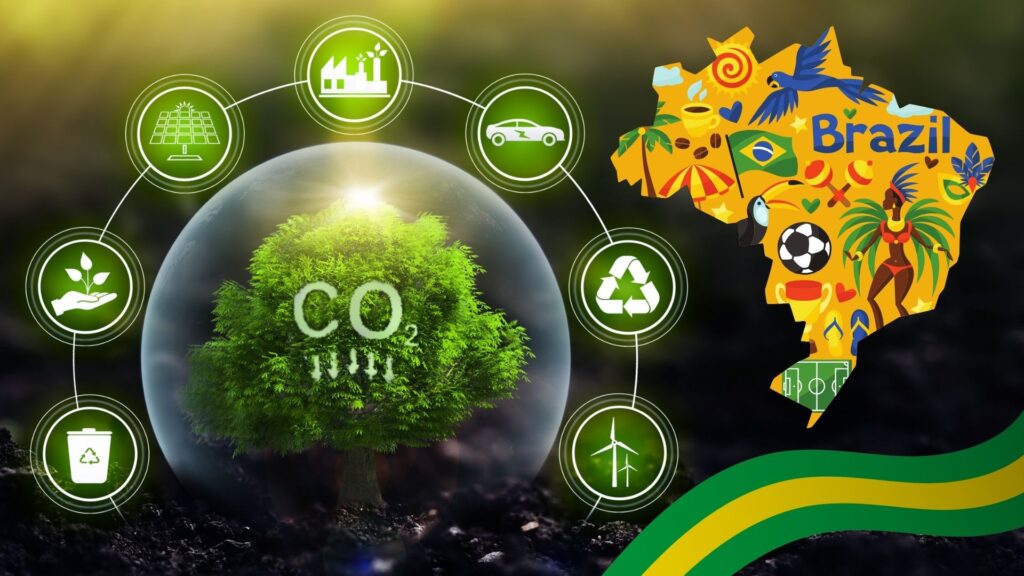Brazil Adopts a Regulated Carbon Market: A Milestone in Climate Action and Sustainability
In a historic environmental policy move, Brazil enacted Law No. 15,042, dated December 11, 2024, establishing the Brazilian System for Trading Greenhouse Gas Emissions (SBCE). This ambitious initiative positions Brazil as a global leader in combating climate change and transitioning to a low-carbon economy. By fostering sustainable practices and promoting climate and nature-positive strategies, this law is set to revolutionize Brazil’s environmental and economic landscape. What Is the Brazilian System for Trading Emissions (SBCE)? The SBCE is a regulated carbon market where companies and industries trade emission allowances, known as Brazilian Emission Quotas (CBEs). Each quota authorizes the emission of one metric ton of carbon dioxide equivalent (tCO₂e). Companies emitting less than their quota can sell surplus allowances, while those exceeding their limit must purchase additional quotas. The system is complemented by Certificates of Verified Reduction or Removal of Emissions (CRVEs), generated by projects that reduce or capture GHG emissions. These include reforestation, clean energy projects, and environmental conservation. Businesses can trade CRVEs or use them to offset emissions, contributing to climate action and sustainability goals. Key Features of Law No. 15,042 This groundbreaking legislation lays out mechanisms to regulate emissions and incentivize businesses to adopt sustainable practices. Key features include: How the SBCE Works: Implementation and Timeline The SBCE will be implemented in phases to ensure a smooth transition: The government has a two-year period to finalize regulations, after which businesses will have additional time to comply with emission limits. Benefits of the SBCE: Climate and Nature-Positive Outcomes The regulated carbon market is a powerful tool for fostering sustainable development and generating significant climate and nature-positive impacts: Transforming Industries Through Sustainability Energy and Manufacturing Agriculture Regenerative Tourism The tourism sector can lead the way in adopting climate-positive strategies: Challenges and Opportunities While the SBCE offers immense potential, it presents challenges that require attention: Why the SBCE Matters for Brazil and the World Law No. 15,042 is not just about reducing emissions but redefining Brazil’s role in the global economy. By embedding climate and nature-positive principles into its economic framework, Brazil is committed to a sustainable future where economic growth complements environmental stewardship. The SBCE is a bold step toward a green economy, from regenerative tourism to carbon-neutral industries. It empowers businesses to innovate while addressing urgent climate challenges, ensuring Brazil remains a key player in global sustainability. FAQs About the SBCE What is the primary goal of the SBCE? The SBCE aims to reduce greenhouse gas emissions and foster sustainable practices through a regulated carbon market. Which sectors are regulated? Energy, transportation, and manufacturing are included, while primary agriculture is excluded, but they can participate voluntarily. What are the benefits of the SBCE for businesses? The SBCE incentivizes innovation, attracts green investments, and enhances international competitiveness. Take the Next Step Toward Sustainability Is your business ready to align with Brazil’s new carbon market? Partner with Green Initiative for expert advice and climate certification services. We provide tailored solutions to help your organization navigate the SBCE, reduce emissions, and achieve sustainability goals. Contact us to transform your climate action strategy and become a leader in Brazil’s sustainable future. Let’s work together for a climate-positive tomorrow!

